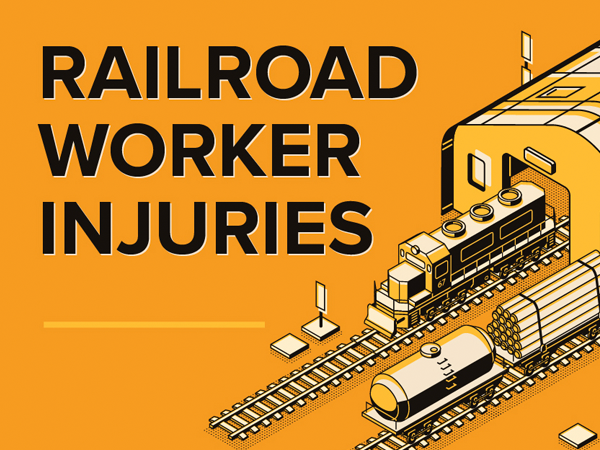RAILROAD WORKER INJURIES
As a railroader, many of your rights are governed by laws that don’t apply to other people. And when your rights are violated, you don’t want just any injury lawyer to represent you – you need an attorney devoted to handling railroader lawsuits.
Attorney referrals
Year after year, we deliver unmatched results.
Clients say it Best
I want to thank you again for what you have done for my family...
Careers
We are always looking for people who will add to our continuing success.
News & Case Alerts
Read related articles and learn about recently filed cases.
At Sommers Schwartz, our Michigan railroad injury lawyers are recognized authorities in FELA law and have represented injured rail workers and their families for decades.
Attorney Arvin Pearlman, a veteran litigator who has handled FELA claims since 1979, leads our railroad injury team. Leveraging his experience and insights, Sommer Schwartz's attorneys aggressively pursue maximum compensation for rail workers hurt or killed on the job.
Our team will aggressively fight on behalf of railroad workers.
Under state workers' compensation laws, an injured worker need not prove that the employer's negligence caused the accident and injuries to obtain benefits. However, to succeed in a FELA action, the injured worker must establish that the employer’s negligence caused their injuries, just as they would in a personal injury lawsuit arising from a car accident, slip and fall, or act of medical malpractice. The major difference is that, in a FELA action, all a worker must prove is that the negligence was a cause of their injuries.
The other big difference between a FELA action and a workers' compensation claim is the nature and amount of damages available. While the requirement of proving employer negligence under FELA may make its claims more burdensome and challenging, FELA also provides injured workers the potential to recover substantially more in compensation than they would under workers' compensation.
What to Do After a Railroad Injury
If you suffered an on-the-job injury while employed by a railroad company, the steps you take after your accident play a significant role in the success of any FELA claim you may pursue. It is essential to immediately report the accident to your supervisor and fill out all paperwork as accurately as possible. When completing these documents, try to identify any acts or omissions on your employer's part that could have contributed to the accident and any defect in the equipment your employer provided.
A supervisor or claim agent will be present while you fill out the forms and describe the accident. Do not give in to any pressure to write down anything except the truth about what happened. These forms will establish the basis of your FELA action and including inaccurate or incomplete information will only hurt your case later. After you have completed the required paperwork, the claim agent will want you to give a recorded statement.
If you have already been to a medical facility, you may not be feeling well enough to provide a recorded statement at that time. Remember that the claim agent is on the railroad's side, and they will do their best to get you to exonerate the company. It is their job to find ways to refute or weaken your case, and they will use anything you say to minimize the value of your claim. Before giving a statement, make sure to speak with your union representative and determine your rights.
If you need medical attention, the company is obligated to take you to a medical facility before you make any statements. After that initial visit, you have the right to see your own physician. While your employer will likely advise you to see a company physician, you are not required to do so. In fact, seeing the doctor suggested by the railroad may hurt your case because, like claim agents, they can be incentivized to minimize your injuries or question their cause.
Reach Out to the Respected Railroad Injury Lawyers at Sommers Schwartz for Immediate Assistance
At Sommers Schwartz, we have a dedicated team of FELA lawyers ready to meet with you, answer your questions, and handle your claim.
Attorney Arvin Pearlman leads our team of rail injury lawyers and is designated counsel for the Brotherhood of Railroad Signalmen, the Transportation Communications Union/Brotherhood of Railway Carmen, and Michigan Local 2051 of the Transport Workers Union of America. He has devoted his career to representing injured rail workers and their families in all types of railroad injury claims. Sommers Schwartz attorney Ben Wilensky also has many years of experience successfully handling claims on behalf of injured railroad workers.
To learn more and schedule a free consultation with one of our experienced railroad injury lawyers, call 866-826-1793. You can also contact us through our online form, and an attorney will contact you shortly.


